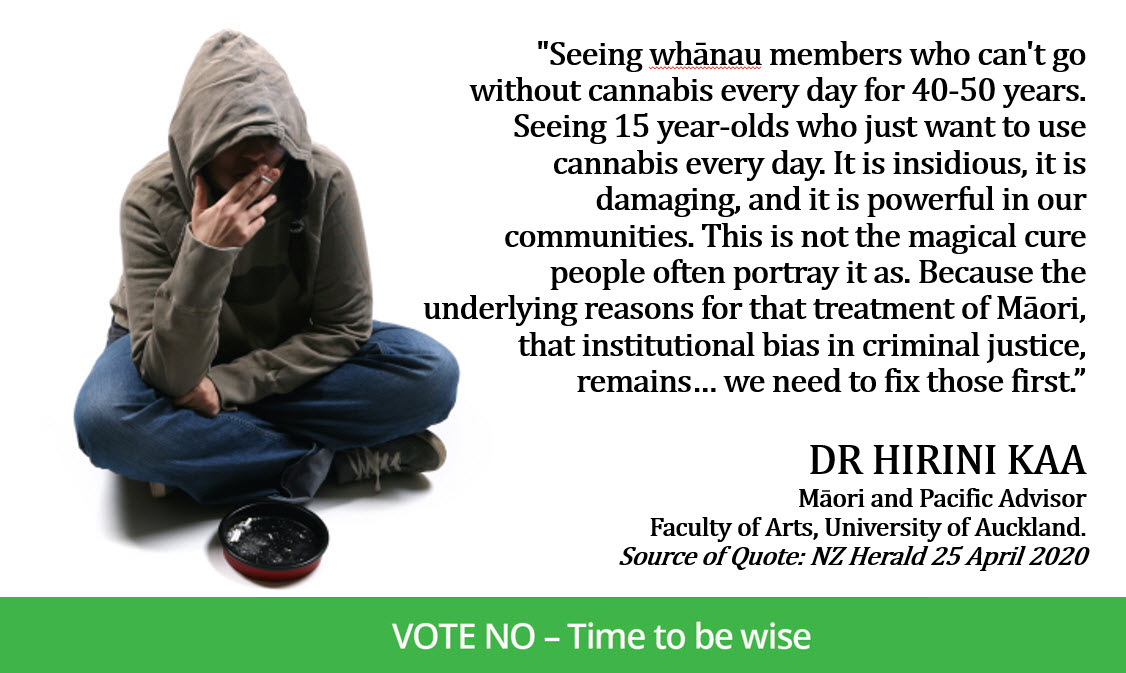
Stuff co.nz 4 September 2020
Our additional comment: Superb comments against the social justice argument which is used for legalising cannabis
“Cannabis issues are presented from a middle-class Pākehā paradigm, says Kaa, that carries fewer risks for them than other sections of society. He says for those living in poverty or dealing with systemic racism, cannabis is a lot more damaging and dangerous. “It won’t fix racism in the justice system, we shouldn’t pretend it will,” says Kaa. “Our history of social policy in this country really worries me. It’s going to send a signal cannabis is accessible and okay to use.””
Anglican minister and historian Dr Hirini Kaa has weighed up all the evidence and will be voting no in the referendum.
The medicinal argument confuses the focus of the referendum, he says, which is about recreational use. Kaa says if everyone votes no to recreational use, medicinal cannabis will still be allowed and prescribed by a doctor, and hemp will still be legal.
Cannabis issues are presented from a middle-class Pākehā paradigm, says Kaa, that carries fewer risks for them than other sections of society. He says for those living in poverty or dealing with systemic racism, cannabis is a lot more damaging and dangerous.
The proposed legislation also relies on the health, education and justice systems mitigating any harm, but those systems don’t currently work for Māori, says Kaa.
“It won’t fix racism in the justice system, we shouldn’t pretend it will,” says Kaa. “Our history of social policy in this country really worries me. It’s going to send a signal cannabis is accessible and okay to use.”
Kaa agrees that a health approach to cannabis is better than the current punitive regime. But it’s not enough to sway his vote.
He smoked his first joint when he was 14 years old. His older cousin, a heavy user, introduced him to the drug.
“They used it several times a day and thought it was harmless to give to a 14-year old,” says Kaa.
“It gets into our whānau, it’s insidious. It’s a creepy drug. It’s not good for us.”
He doesn’t use cannabis now but sees its effects on his wider whānau.
“They wait every day to have a smoke. They wait for the growing season. It might not be psychologically addictive in a clinical sense but it’s certainly in the context of poverty, hopelessness many of my whanaunga are in. It’s addictive in that context.
“I see my 15-year-old nephews who just want to smoke weed every day, so they can escape from their reality. This is the dangers of cannabis in our communities.”
READ MORE: https://www.stuff.co.nz/pou-tiaki/300096454/cannabis-referendum-would-legalisation-change-the-racebased-targeting-of-mori
